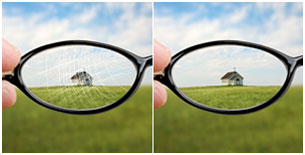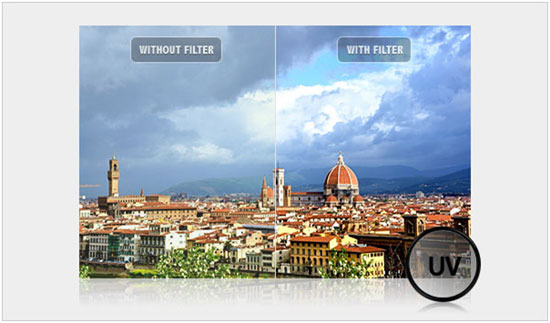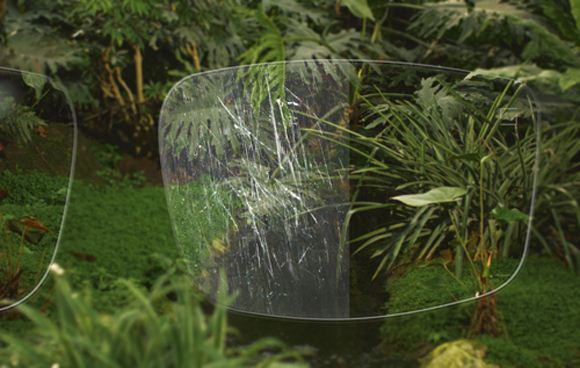Anti-Reflective Coating
Anti-reflective coating (also called AR coating or anti-glare coating) is a microscopically thin multilayer coating that eliminates reflections from the front and back surface of eyeglass lenses.
By doing so, AR coating makes your lenses nearly invisible. So people can focus on your eyes, not distracting reflections from your eyeglasses.
Anti-reflective coating also eliminates glare caused by light reflecting from your lenses. With reflections eliminated, lenses with AR coating provide better vision for night driving and more comfortable vision for reading and computer use.
AR coating is highly recommended for all eyeglass lenses, but particularly for polycarbonate and high-index lenses, that reflect more light than regular glass or plastic lenses.
For the best possible comfort in all lighting conditions, many eye care professionals recommend applying anti-reflective coating to photo chromic lenses. AR coating improves light transmission through the lenses for night driving and helps photo chromic lenses to reduce glare in bright sunlight.

Scratch - Resistant Coating
No eyeglass lenses - not even glass lenses - are scratch-proof.
However, lenses that are treated front and back with a clear, scratch-resistant coating have a much harder surface that is more resistant to scratching, whether from dropping your glasses on the floor or occasionally cleaning them with a paper towel.
Kids' lenses, especially, benefit from a scratch-resistant hard coat for greater durability.
Today, most eyeglass lenses, including high-index lenses and lenses made of polycarbonate and Trivex, have a built-in scratch-resistant coating.
Keep in mind that even the best scratch-resistant coating can't completely protect your lenses from wear and tear. To keep your glasses looking new, store them in a cushioned case when not in use, and clean your lenses with a microfiber cloth and the cleaning solution your optician recommends. Also, be aware of products that promise to repair scratched lenses. These products may fill in the scratches, but it is impossible for them to make the scratches disappear so the lenses look new again.

Ultraviolet Treatment
Another beneficial lens treatment is an invisible dye that blocks ultraviolet (UV) light. Just as sunscreen keeps the sun's UV rays from harming your skin, UV-protective treatments for eyeglass lenses block those same rays from damaging your eyes.
Overexposure to ultraviolet light is thought to be a cause of cataracts, retinal damage and other eye problems.
Regular plastic eyeglass lenses block most UV light, but adding a UV-blocking dye boosts UV protection to 100 percent for added safety. Other eyeglass lens materials, including polycarbonate and most high-index plastics, have 100percent UV protection built-in. So an extra lens treatment is not required for these lenses.
Photo chromic lenses also block 100 percent of the sun's UV rays without the need for an added UV lens treatment.

Tints
if you need to wear eyeglasses, consider the added benefits of a pair of tinted spectacles. Plastic and glass lenses can be tinted to pretty much any shade of the rainbow. They can also be tinted as light or as dark as you prefer. But not only will they look great, each shade offers a unique benefit for your eyes.


